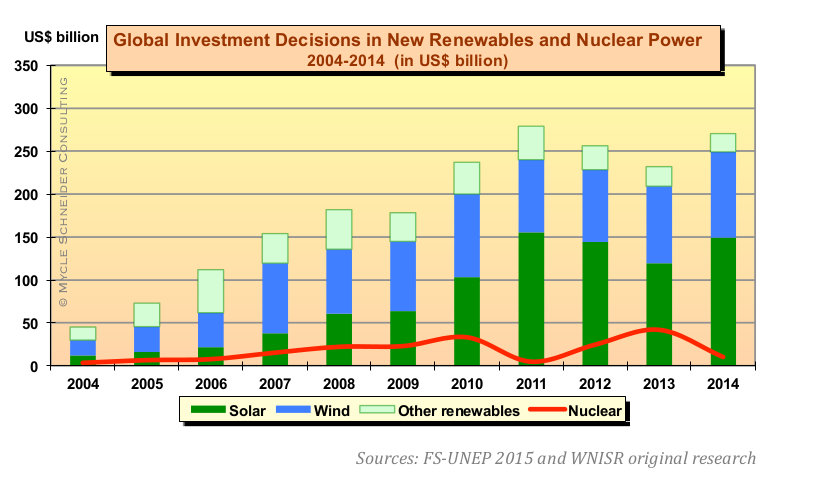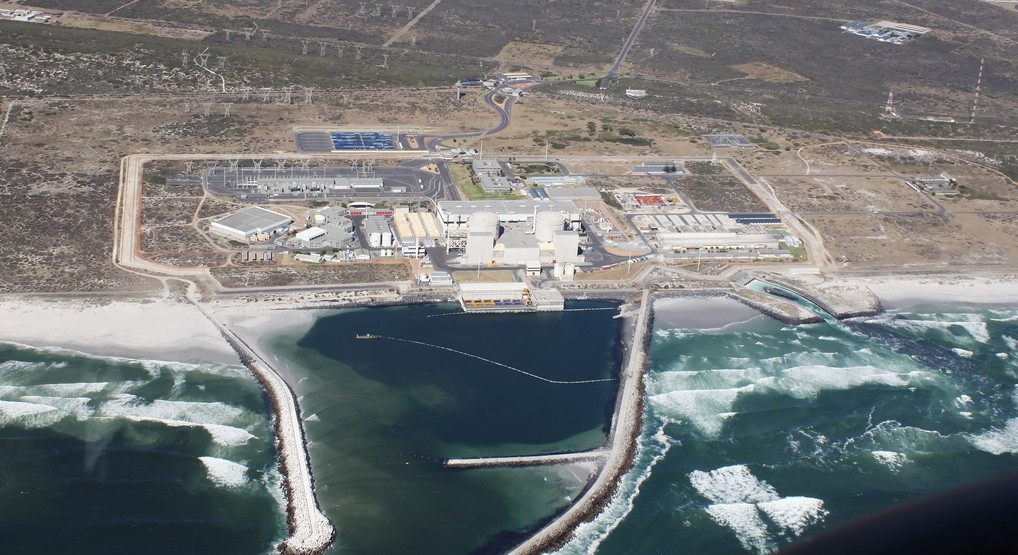A large part of the current plan for fixing South Africa’s energy crisis is to procure 9.6GW of new nuclear reactors by 2030, at a cost estimated anywhere between R48bn and R1tn – although officially there’s no budget yet.
The reactors will probably come from Russia or China, under a new government procurement program that’s underway but shrouded in mystery. It’s hoped that the injection of new nukes will bring power, jobs and skills to the country, but a new report published last week may make proponents think twice.
The document in question, The World Nuclear Industry Status Report 2015, was conducted by independent researcher Mycle Schneider (who sits on the International Panel for Fissile Materials) and Antony Froggatt – who previously worked for Greenpeace.
It was supported by renewable energy advocates including the Greens-EFA Group in the European Parliament and the Natural Resources Defense Council in the US. The foreword is written by UK environmentalist Jonathon Porritt [Disclosure – I have worked indirectly for Porritt’s Forum for the Future in the past].
So sceptics have plenty of excuses to ignore the findings, but even taking the credentials into account the headline findings are hard to argue with and should be worrying for South Africans.
Aside from a slowdown in global investment in nuclear energy, which has seen the only current build project in the UK slide into bankruptcy and installation costs creep above wholesale unit prices, the report finds that it takes an average of 9.4 years to build a nuclear reactor, and three quarters of all reactors under construction have been delayed by more than two years.
Since 1977, 92 reactors planned have been cancelled or indefinitely suspended – one out of every eight. Coincidentally, South Africa is planning up to eight reactors. Fifteen of those cancellations were in Russia, widely assumed to be the leading bidder for the South African contracts (South Korea, France and China also have MOUs and training programs with us).
Of the latest “Generation III” designs, 16 out of 18 projects have been delayed.
The 15 reactors currently being built which aren’t officially delayed have yet to reach their initial milestones “making it difficult to assess whether or not they are on schedule” the authors say.
When comparing the market for nuclear to renewables, the report says that there’s now a lot more installed capacity of wind and solar than there is in nuclear – although nuclear plants deliver twice as much electricity per year for every kilowatt on the nameplate. Significantly, though, China consumed more energy from wind power alone than it did from nuclear in 2014 (158TWh versus 124TWh). China has more reactors than any other country (27), and more projects under construction too.
 According to a presentation at the Department of Energy last week, South Africa is planning to train nuclear engineers in Russia. This new report may give ammunition to those who worry that Russia will dump technology on South Africa.
According to a presentation at the Department of Energy last week, South Africa is planning to train nuclear engineers in Russia. This new report may give ammunition to those who worry that Russia will dump technology on South Africa.
“The Russian builders aren’t doing well neither(sic),” the authors write, “In February 2015, Moody’s downgraded Atomenergoprom — 100% subsidiary of Rosatom, as integrated nuclear group also building reactors it is comparable to the French AREVA — to “junk” and assigned a ‘negative outlook’. The lack of realism and overblown market expectations drive nuclear companies and traditional utilities into ruin.”
The report also touches on the Russian National Wealth Fund, which will likely be used to finance South Africa’s planned eight new reactors. The fund is being also used – or is planned to be used – to support nuclear energy in Belarus, China, India, Armenia, Bangladesh, Finland, Hungary, Iran, Jordan, Turkey, Ukraine and Vietnam.
“However,” says the report, “The National Wealth Fund is also being used for stabilising the Russian economy. With falling oil and gas prices, the falling value of the rouble, and ongoing sanctions, the nuclear export program will be disrupted for political and economic reasons.”
Whether you’re pro, anti or ambivalent about nuclear, the report makes interesting reading. Go check it out over here.
[Via Greentech Media, Image – CC Jim Sher]

